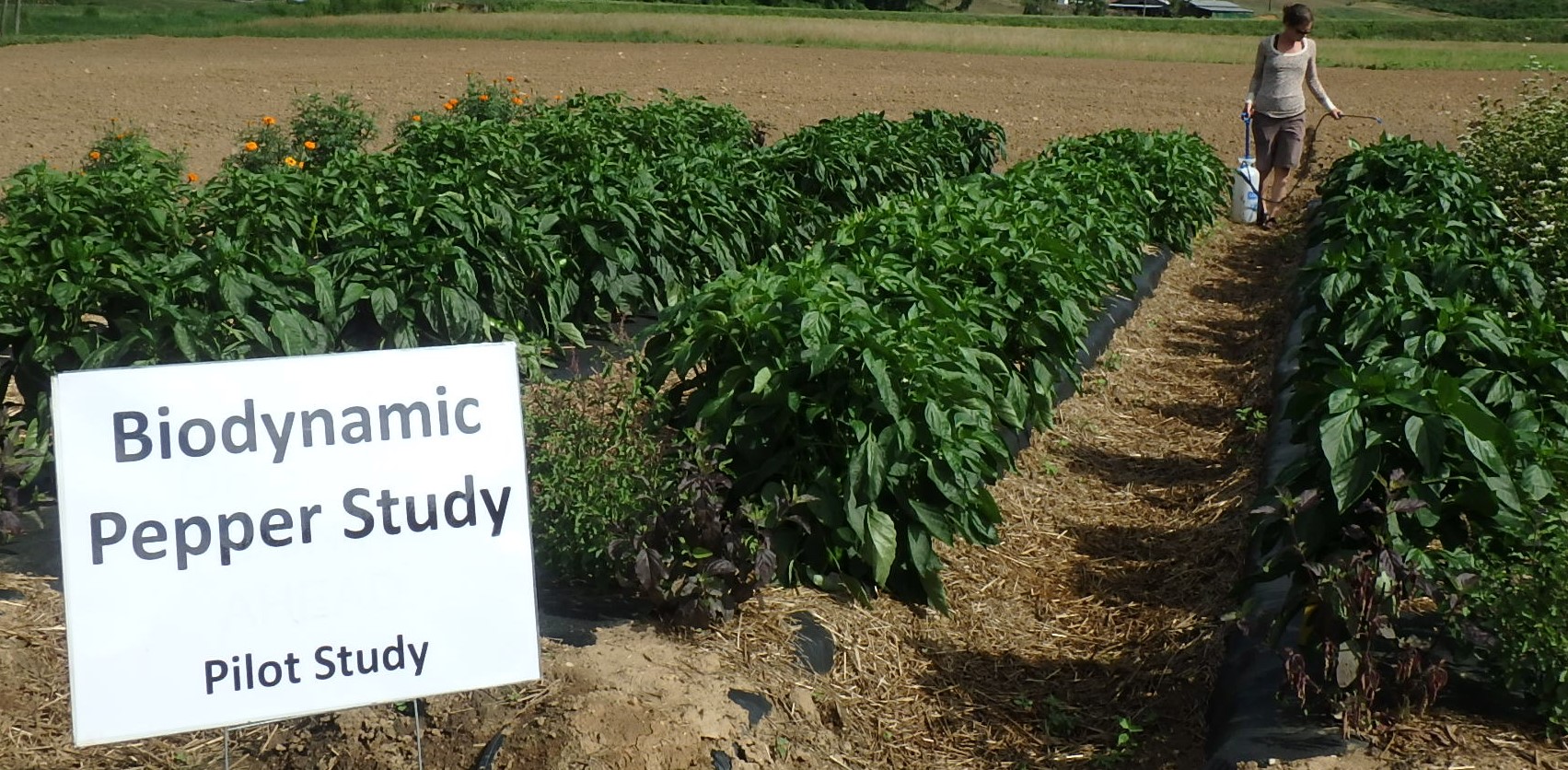Biodynamic Agriculture
go.ncsu.edu/readext?268180
en Español / em Português
El inglés es el idioma de control de esta página. En la medida en que haya algún conflicto entre la traducción al inglés y la traducción, el inglés prevalece.
Al hacer clic en el enlace de traducción se activa un servicio de traducción gratuito para convertir la página al español. Al igual que con cualquier traducción por Internet, la conversión no es sensible al contexto y puede que no traduzca el texto en su significado original. NC State Extension no garantiza la exactitud del texto traducido. Por favor, tenga en cuenta que algunas aplicaciones y/o servicios pueden no funcionar como se espera cuando se traducen.
Português
Inglês é o idioma de controle desta página. Na medida que haja algum conflito entre o texto original em Inglês e a tradução, o Inglês prevalece.
Ao clicar no link de tradução, um serviço gratuito de tradução será ativado para converter a página para o Português. Como em qualquer tradução pela internet, a conversão não é sensivel ao contexto e pode não ocorrer a tradução para o significado orginal. O serviço de Extensão da Carolina do Norte (NC State Extension) não garante a exatidão do texto traduzido. Por favor, observe que algumas funções ou serviços podem não funcionar como esperado após a tradução.
English
English is the controlling language of this page. To the extent there is any conflict between the English text and the translation, English controls.
Clicking on the translation link activates a free translation service to convert the page to Spanish. As with any Internet translation, the conversion is not context-sensitive and may not translate the text to its original meaning. NC State Extension does not guarantee the accuracy of the translated text. Please note that some applications and/or services may not function as expected when translated.
Collapse ▲
Applying a biodynamic preparation (501 and 508) to a pepper trial in western NC.
Biodynamics is a method of organic farming that was originally developed by the philosopher and scientist, Rudolf Steiner in the 1920s. Many people consider him the pioneer of the sustainable agriculture movement.
Merriam-Webster provides an easy to understand definition for biodynamic: “of or relating to a system of farming that follows a sustainable, holistic approach which uses only organic, usually locally-sourced materials for fertilizing and soil conditioning, views the farm as a closed, diversified ecosystem, and often bases farming activities on lunar cycles”
Many people refer to biodynamic farming as “beyond organic” because of the emphasis on bringing plants and animals together; creating the fertility needed through the use of manure and cover crops produced on the farm; encouraging diversity in plants, animals, and insects; and using open-pollinated seeds and heritage breeds of animals.
Biodynamic agriculture is in its infancy in the United States but is very popular in other parts of the world. Biodynamic agriculture is widely practiced in Germany, France, Italy, and Australia with certified Biodynamic farms in over 60 countries. In the United States, the most popular and widely grown Biodynamic crop and product is wine grapes and wine.
For a farmer to use the term “Biodynamic” for the farm or farm products produced there, Biodynamic certification must be obtained through Demeter-USA. Demeter certifies Biodynamic farms around the world. As explained on their website “While all of the organic requirements for certification under the National Organic Program are required for Biodynamic certification, the Demeter standard is much more extensive, with stricter requirements around imported fertility, greater emphasis on on-farm solutions for disease, pest, and weed control, and in-depth specifications around water conservation and biodiversity.”
Biodynamic agriculture is based on scientific principles but there is not a lot of research to support the practices, especially in the United States. This is slowly changing, but in the meantime, consumer demand is increasing. As a result, some farmers are choosing to become Certified Biodynamic even without the research.
There are several Demeter Certified Biodynamic farms in North Carolina:
- Pangaea Plants in Lake Lure – they produce medicinal herbs
- Against the Grain in Zionville – they produce vegetables and livestock
- Cottle Organics in Rosehill – they grow vegetables and grain
There is a lot of skepticism within the agricultural research community about biodynamics. Much of this is centered around the following of lunar cycles and use of biodynamic preps. Extension Specialist, Jeanine Davis, addressed this issue in an article in 2014 complete with references. The Biodynamic Association maintains a Research Reference Portal for those interested in reading about the research being conducted on this topic.


